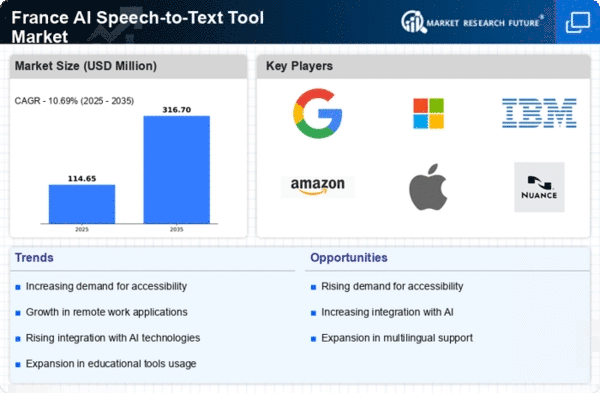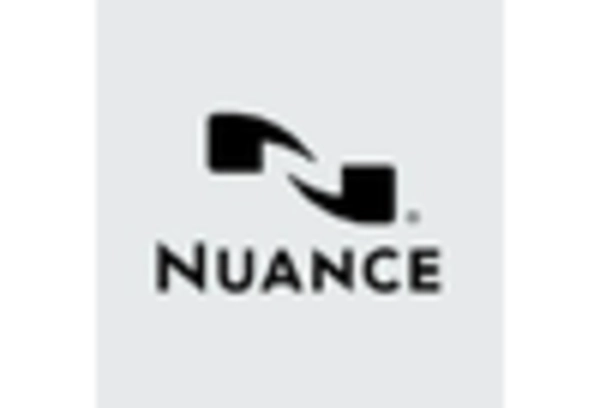Integration with Cloud Services
The integration of ai speech-to-text tools with cloud services is transforming how businesses operate in France. This trend allows for seamless access to speech recognition capabilities from anywhere, enhancing collaboration and productivity. As organizations increasingly adopt remote work models, the demand for cloud-based solutions is surging. The ai speech-to-text-tool market is projected to see a significant uptick in cloud integration, with estimates suggesting that over 40% of users will prefer cloud-based tools by 2027. This shift not only facilitates real-time collaboration but also reduces the need for extensive on-premises infrastructure, making it a cost-effective solution for many businesses.
Growing Focus on User Experience
User experience is becoming a critical factor in the development of ai speech-to-text tools. Companies in France are prioritizing intuitive interfaces and user-friendly features to enhance customer satisfaction. This focus on user experience is likely to drive innovation within the ai speech-to-text-tool market, as businesses strive to differentiate their offerings. Research indicates that tools with superior user experience can increase customer retention rates by up to 25%. As a result, companies are investing in design and usability testing to ensure their products meet the evolving needs of users, thereby fostering growth in the market.
Technological Advancements in AI
The rapid evolution of artificial intelligence technologies is a primary driver for the ai speech-to-text-tool market. Innovations in machine learning algorithms and natural language processing are enhancing the accuracy and efficiency of speech recognition tools. In France, the market is projected to grow at a CAGR of 15% from 2025 to 2030, driven by these advancements. Companies are increasingly investing in AI capabilities to improve their products, leading to a competitive landscape where superior technology can significantly influence market share. As businesses seek to leverage these advancements, the demand for sophisticated speech-to-text solutions is likely to rise, thereby propelling the market forward.
Rising Demand for Multilingual Support
In a linguistically diverse country like France, the demand for multilingual support in speech-to-text tools is becoming increasingly pronounced. The ai speech-to-text-tool market is responding to this need by developing solutions that can accurately transcribe multiple languages and dialects. This capability is essential for businesses operating in various regions and sectors, including customer service and education. According to recent estimates, the multilingual segment of the market is expected to account for approximately 30% of total revenue by 2026. This trend indicates a growing recognition of the importance of inclusivity and accessibility in technology, further driving the market's expansion.
Increased Investment in Digital Transformation
The ongoing digital transformation across various sectors in France is significantly impacting the ai speech-to-text-tool market. Organizations are increasingly recognizing the value of automating processes and improving operational efficiency through digital solutions. This trend is reflected in the substantial investments being made in AI technologies, with estimates suggesting that spending on digital transformation initiatives will reach €100 billion by 2027. As businesses seek to enhance their capabilities, the demand for effective speech-to-text tools is likely to rise, positioning the market for robust growth in the coming years.
















